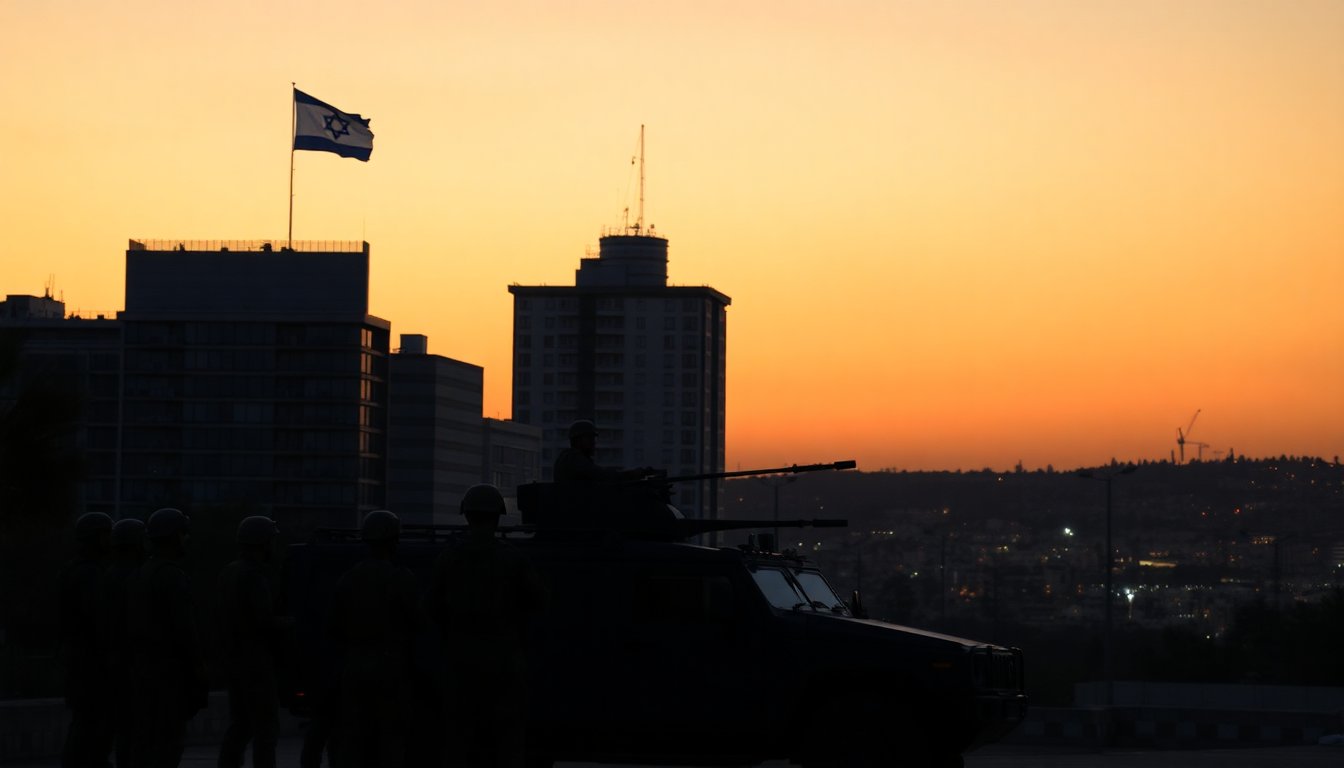Table of Contents
In the aftermath of two years of conflict in Gaza, Israel has strengthened its military presence but is now experiencing unprecedented global isolation. The ongoing strife has sparked a wave of international criticism, raising concerns about the implications for Israel’s future stability and global relationships.
The Israeli Defense Forces (IDF) have showcased significant military capabilities, reinforcing Israel’s image as a formidable power in the region. However, these actions, while fortifying its defenses, have also incited backlash that threatens to reshape its diplomatic landscape.
Military strength versus diplomatic relations
Israel’s military operations in Gaza have highlighted its advanced technology and tactical prowess. The IDF’s use of precision airstrikes and ground maneuvers has led to substantial military gains. While these strategies have effectively neutralized certain threats, they have also drawn widespread condemnation from various international entities, including governments and humanitarian organizations.
As global sentiments shift, Israel faces the delicate challenge of balancing its military objectives with the need for positive diplomatic engagement. The complexity of international relations in today’s geopolitical climate has made it increasingly difficult for Israel to navigate its position without inciting further criticism.
The role of public perception
Israel’s global perception has changed dramatically. Public opinion, influenced by media narratives and reports from on-ground activists, has taken a more critical stance toward Israel’s actions. This shift is significant, as social media platforms amplify voices that challenge Israel’s narrative, often portraying its military campaigns as aggressive rather than defensive.
Moreover, the growing boycott, divestment, and sanctions (BDS) movement highlights the increasing willingness of nations and organizations to oppose what they perceive as injustices. This movement has gained traction in various circles, creating a ripple effect that threatens Israel’s economic and cultural ties worldwide.
Future implications for Israel
Looking ahead, the ramifications of this dual reality—military strength juxtaposed with diplomatic isolation—pose significant questions for Israel. How can it maintain security while fostering relationships that might mitigate the backlash it faces? The challenge lies in navigating a path that ensures its long-term safety and prosperity.
Israel must consider innovative diplomatic approaches. Engaging in open dialogues with former allies and addressing concerns raised by critics could serve as a bridge to rebuilding trust. Additionally, showcasing initiatives that focus on humanitarian efforts may counteract the narrative of aggression and help restore its image.
Potential paths forward
To counteract growing isolation, Israel might explore strategic partnerships with nations that share common interests in security and economic development. Strengthening ties with historically supportive countries could yield benefits that extend beyond military might.
Furthermore, investing in grassroots diplomacy could enhance Israel’s reputation abroad. By fostering cultural exchanges and collaborative projects, Israel can create a narrative that emphasizes peace and coexistence rather than conflict. This shift could be essential in changing the perceptions of those who currently view it unfavorably.
The Israeli Defense Forces (IDF) have showcased significant military capabilities, reinforcing Israel’s image as a formidable power in the region. However, these actions, while fortifying its defenses, have also incited backlash that threatens to reshape its diplomatic landscape.0


